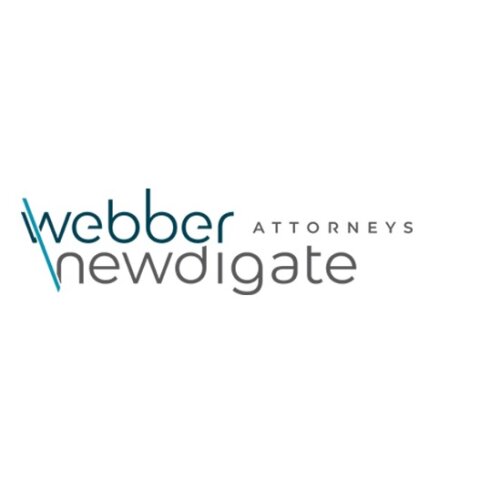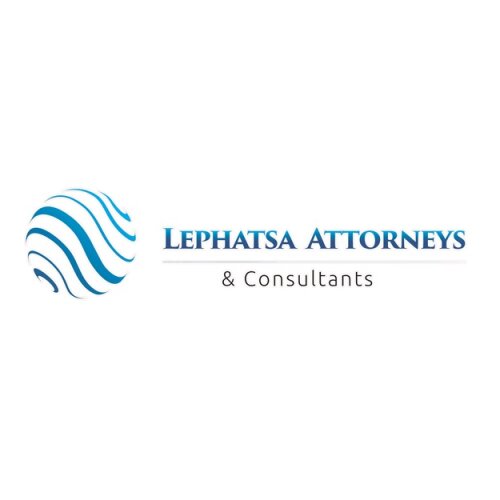Best Child Abuse Lawyers in Lesotho
Share your needs with us, get contacted by law firms.
Free. Takes 2 min.
Free Guide to Hiring a Family Lawyer
Or refine your search by selecting a city:
List of the best lawyers in Lesotho
About Child Abuse Law in Lesotho
Child abuse in Lesotho is a critical social issue that encompasses various forms of harm inflicted upon children, including physical abuse, emotional abuse, sexual abuse, and neglect. The Lesotho government, along with various non-governmental organizations, has been working diligently to address these issues through legislative frameworks and public awareness campaigns. Despite these efforts, challenges remain due to factors like poverty, cultural beliefs, and inadequate enforcement of laws.
Why You May Need a Lawyer
Various situations may necessitate legal assistance in matters of child abuse. These include instances where someone suspects a child is being abused or neglected and wants to report it safely. Legal representation may also be required in cases of custody battles involving allegations of abuse, or if you're facing charges related to child abuse. Furthermore, victims or their guardians may seek legal assistance for pursuing civil action for damages or implementing protective orders for the child's safety.
Local Laws Overview
Lesotho has several legal provisions aimed at protecting children from abuse. The Child Protection and Welfare Act of 2011 is the primary legislation safeguarding children's rights and welfare. This Act outlines responsibilities and penalties related to the treatment and protection of children. It defines abuse in wide terms and sets stringent penalties for offenders. The Act also establishes mandates for reporting suspected abuse and provides guidelines for taking protective actions to ensure a child’s safety.
Frequently Asked Questions
What constitutes child abuse under Lesotho law?
Child abuse in Lesotho is any intentional harm or mistreatment to a child under the age of 18. This includes physical, sexual, and emotional abuse, as well as neglect.
How can I report a suspected case of child abuse?
Suspected cases should be reported to local law enforcement or social services. You may also contact child protection agencies for assistance in reporting abuse.
What are the penalties for child abuse in Lesotho?
Penalties for child abuse can be severe and include imprisonment, fines, or both, depending on the severity and specifics of the case. The Child Protection and Welfare Act outlines these penalties.
How does the legal process work for child abuse cases?
The process typically involves investigation by child protection services and law enforcement, followed by legal proceedings in family or criminal court if there's sufficient evidence.
Can a child give testimony in court?
Yes, children can testify in court, although there are usually special procedures to ensure their protection and comfort during legal proceedings.
Are there protective measures for children during legal proceedings?
Yes, the law provides several measures to protect children's psychological and emotional well-being, such as testifying via video link or providing testimony through a child psychologist.
What if someone is falsely accused of child abuse?
Anyone falsely accused should seek legal counsel immediately. A lawyer can help gather evidence and build a defense to clear the name of the accused.
Can child abuse affect custody decisions?
Yes, allegations of child abuse can significantly impact custody and visitation arrangements, with the child's best interests being the primary consideration.
Is there a statute of limitations for reporting child abuse in Lesotho?
As a general rule, reporting should be done as soon as possible. However, legal advice should be sought for specific limitations related to different types of cases.
What support is available for victims of child abuse?
Various services are available, including counseling, medical care, and legal assistance from NGOs, government agencies, and other support organizations focused on child welfare.
Additional Resources
Several resources can provide additional support for child abuse cases in Lesotho:
- The Ministry of Social Development provides direct services and support for children in need.
- Child and Gender Protection Units (CGPUs) in the Lesotho Mounted Police Service are dedicated to handling abuse cases.
- Organizations like UNICEF collaborate with the government to strengthen child protection measures.
- Local NGOs often provide legal aid, counseling, and other support services to victims of child abuse.
Next Steps
If you require legal assistance in a child abuse case in Lesotho, consider the following steps:
- Contact a lawyer who specializes in child protection and family law to discuss your case and obtain advice.
- Gather all relevant documentation and evidence to support your case or report.
- Reach out to local authorities or child protection services to report any urgent concerns about a child's safety.
- Utilize available resources from government bodies and NGOs for support and guidance.
- Consider attending workshops or informational sessions on child protection laws and rights for a better understanding of the legal landscape in Lesotho.
Lawzana helps you find the best lawyers and law firms in Lesotho through a curated and pre-screened list of qualified legal professionals. Our platform offers rankings and detailed profiles of attorneys and law firms, allowing you to compare based on practice areas, including Child Abuse, experience, and client feedback.
Each profile includes a description of the firm's areas of practice, client reviews, team members and partners, year of establishment, spoken languages, office locations, contact information, social media presence, and any published articles or resources. Most firms on our platform speak English and are experienced in both local and international legal matters.
Get a quote from top-rated law firms in Lesotho — quickly, securely, and without unnecessary hassle.
Disclaimer:
The information provided on this page is for general informational purposes only and does not constitute legal advice. While we strive to ensure the accuracy and relevance of the content, legal information may change over time, and interpretations of the law can vary. You should always consult with a qualified legal professional for advice specific to your situation.
We disclaim all liability for actions taken or not taken based on the content of this page. If you believe any information is incorrect or outdated, please contact us, and we will review and update it where appropriate.
Browse child abuse law firms by city in Lesotho
Refine your search by selecting a city.









